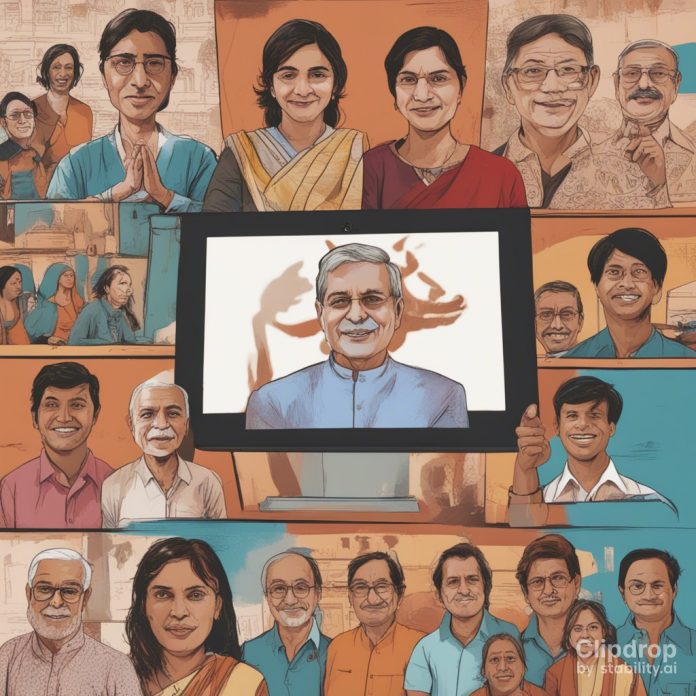Introduction
India is a land of diversity in every sense – culturally, ethnically, and linguistically. With over 1.3 billion people belonging to various linguistic communities, campaigning in India is a unique challenge that requires a deep understanding of the nation’s multilingual landscape. In this blog, we’ll explore the intricacies of political campaigning in a country where language can be both a bridge and a barrier.
- The Multilingual Tapestry of India
India boasts a linguistic diversity that is nothing short of astonishing. The Constitution of India recognizes 22 official languages, but in reality, the country is home to several hundred languages. Some of the major ones include Hindi, Bengali, Telugu, Marathi, Tamil, Urdu, Gujarati, Kannada, Punjabi, and Malayalam. Each of these languages is not just a medium of communication but a repository of culture, history, and identity.
- The Power of Regionalism
In India, regionalism plays a crucial role in politics. State-level political parties often have a strong influence on the electoral landscape, and they usually operate in their respective regional languages. Understanding and respecting regional languages is essential for any political campaign to connect with the local population.
- Language as a Bridge
One of the fundamental challenges of campaigning in India is bridging the language gap. Language can be a powerful tool for building connections and trust. When political leaders speak the local language fluently, it can create a sense of belonging and make voters feel that their concerns are being heard and understood.
- Translation and Interpretation
Given the linguistic diversity of India, many political campaigns rely on translation and interpretation services. Accurate translation ensures that campaign messages resonate with the audience in their native language. However, it’s important to note that translation goes beyond mere word-for-word conversion; it should capture the nuances, idioms, and cultural context of the language.
- Cultural Sensitivity
Cultural sensitivity is paramount in a diverse nation like India. What works in one linguistic and cultural context may not work in another. Political campaigns must be mindful of cultural nuances, taboos, and sensitivities when crafting their messages and strategies.
- Digital Campaigning
In recent years, digital campaigning has gained prominence in India. Social media platforms like Facebook, Twitter, and Instagram have become battlegrounds for political discourse. Campaigns need to adapt their content to suit the language preferences of their target audience on these platforms. Multilingual content creation and management are key to successful digital campaigns.
- Regional Media Engagement
Engaging with regional media outlets is a strategic move for political campaigns. These outlets often have a significant influence on local communities and can help amplify campaign messages in the appropriate regional languages.
- Linguistic Outreach
Political campaigns should actively reach out to linguistic and cultural organizations, community leaders, and influencers. Collaborations with local cultural and linguistic groups can enhance the campaign’s credibility and reach.
- Inclusivity and Unity
While navigating India’s multilingual landscape, it’s important for political campaigns to strike a balance between celebrating linguistic diversity and promoting national unity. Campaigns should emphasize the idea that India’s strength lies in its diversity and that all linguistic communities have a role to play in the nation’s progress.
Conclusion
Campaigning in India’s multilingual landscape is a complex endeavor, but it offers immense opportunities for political parties and leaders to connect with a diverse population. The key lies in understanding, respecting, and harnessing the power of language as both a bridge and a barrier. By crafting inclusive and culturally sensitive campaigns, political leaders can navigate India’s linguistic diversity and truly connect with the people they aim to serve. In doing so, they contribute to the strength and unity of this remarkable nation.

